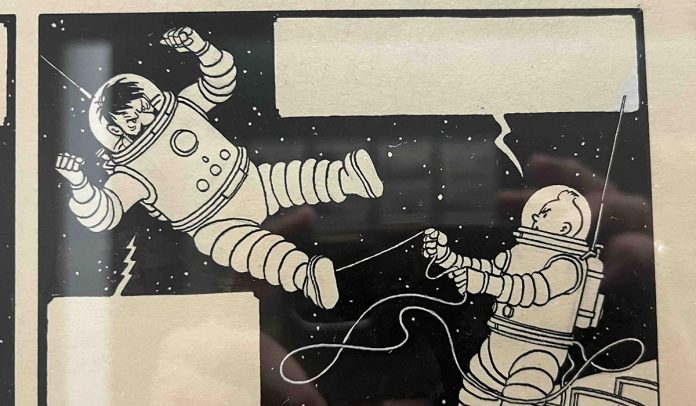In the last installment of my France-Japan travel diary, we explored the Comics 1964-2024 exhibit on the 5th floor of the Pompidou Centre in Paris. (Catch up with the whole series here.)
I forgot to include this in my last entry, but here’s a video walkthrough of the exhibit led by two of the curators – it’s in French, but English subtitles are available too:
Anyway! The Comics 1964-2024 exhibit was just the start – The Pompidou Centre promised “Comics on Every Floor” and boy, did they deliver on that promise in some amazing and thought-provoking ways.
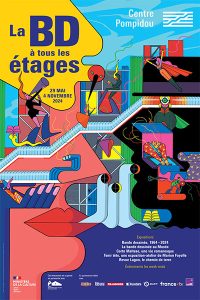
After enjoying the exhibit on the 5th floor, I headed to the 4th floor of the museum for “La bande dessinée au Musée” to see more comics art and found a few fun surprises.
On the 4th floor, in the hallway naves, there were original comics pages, full-color illustrations and sketches by legendary comics creators that were created / published before 1964 (the starting date for the exhibit on the 5th floor).
For example, the epitome of Franco-Belgian comics, TinTin by Herge. Besides original pages featuring famous scenes from this globe-trotting teen adventurer’s space exploration from Destination Moon and Explorers on the Moon, there were also pages of sketches on vellum of the famous red and white rocket ship – a reminder that creating comics in the days before computers and drawing software could require a LOT of sketches to perfect.
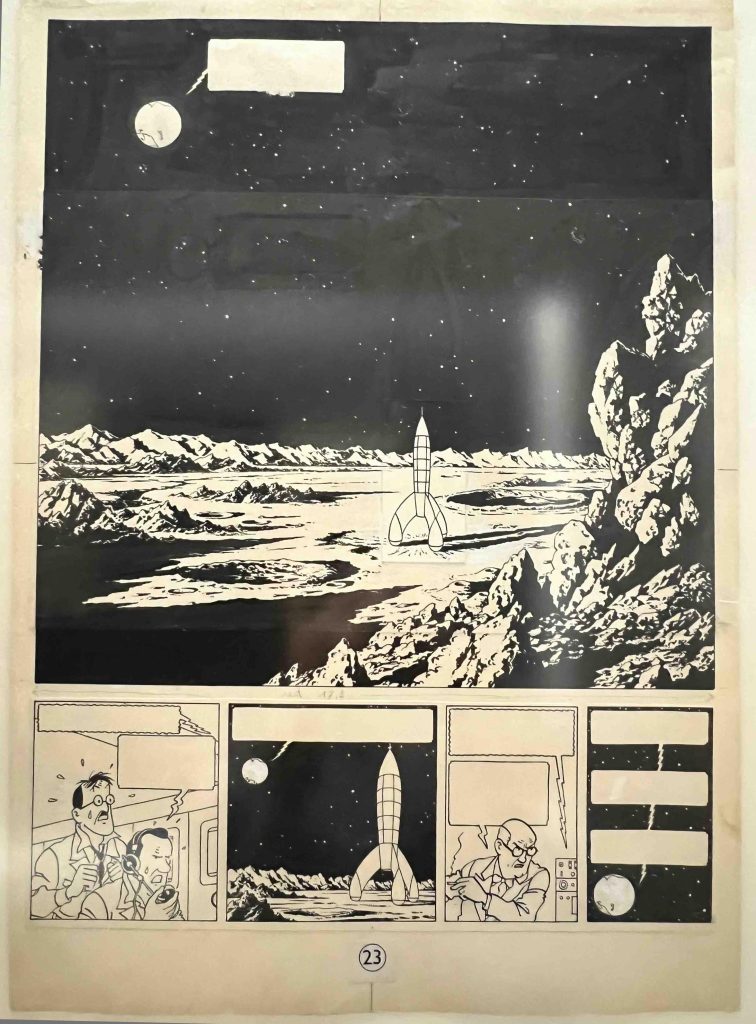
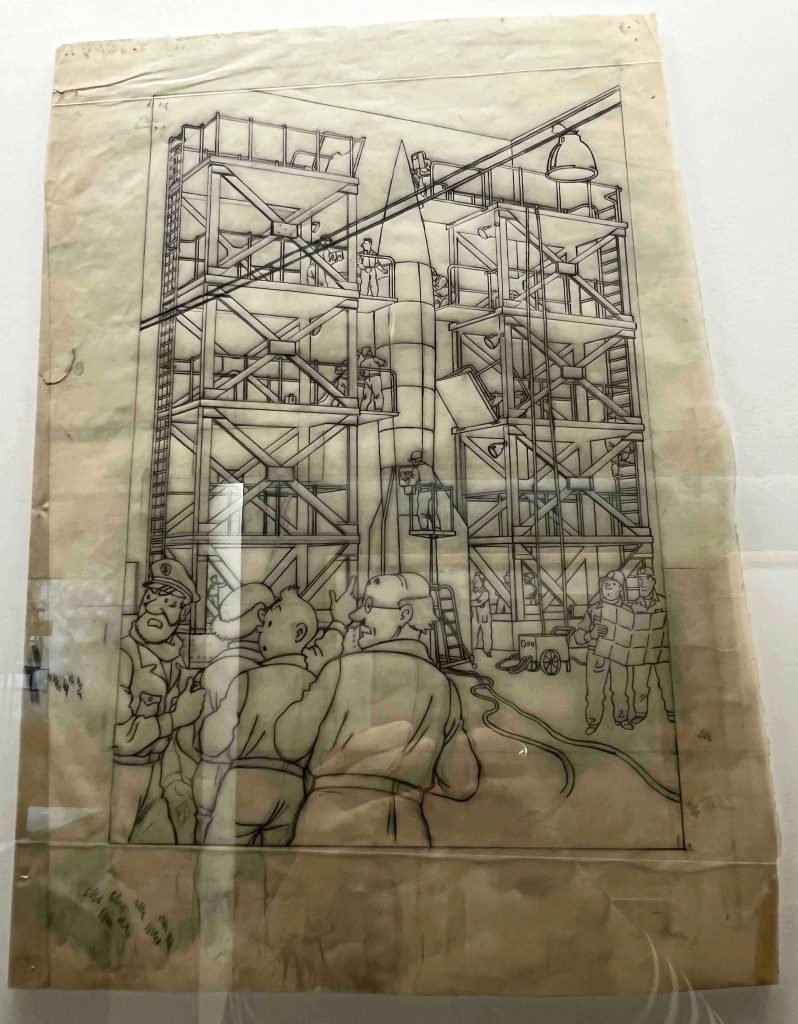
Work by another pre-1964 comics legend, Winsor McCay was on display – the surreal, intricate, and whimsical Little Nemo’s Adventures in Slumberland. As one of the early examples of a newspaper comics hit series, the story follows the fantastical dream adventures of a little boy with a big imagination that usually ends with Nemo finding himself in bed, awakening to his life in the “real world.”
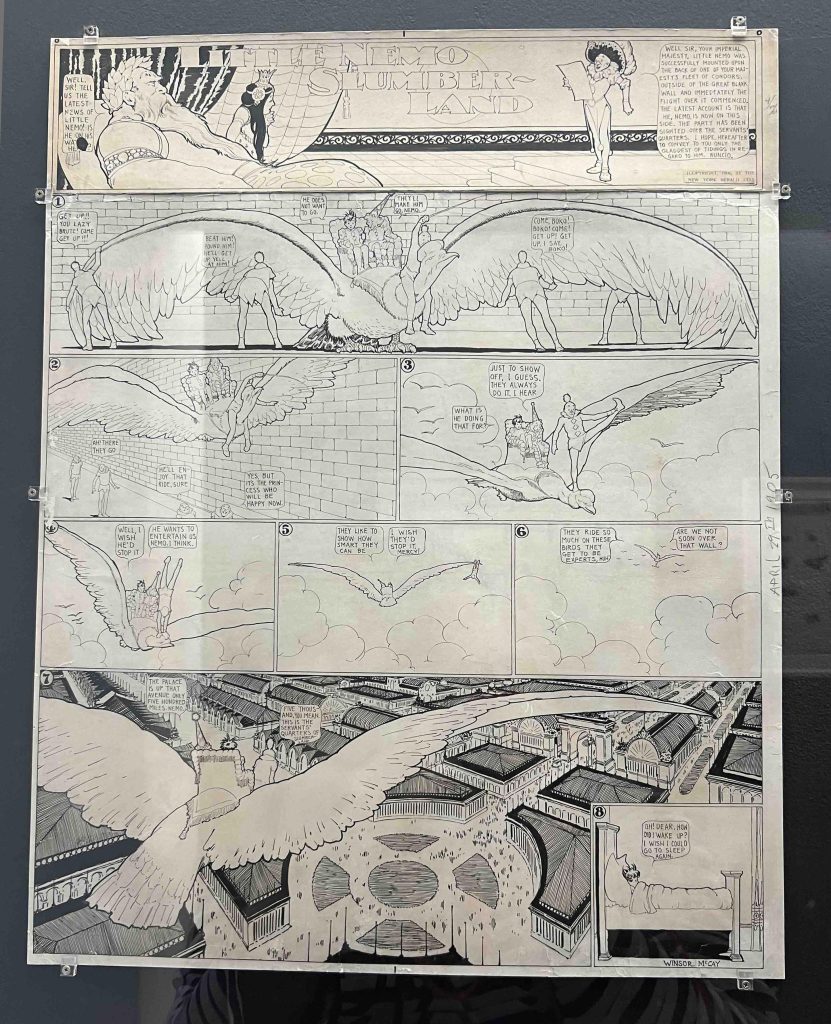
Original art and pages from George Herriman’s Krazy Kat comics were also on display and presented just a few feet away from surrealist art created in approximately the same era. So were pages from The Spirit by Will Eisner.
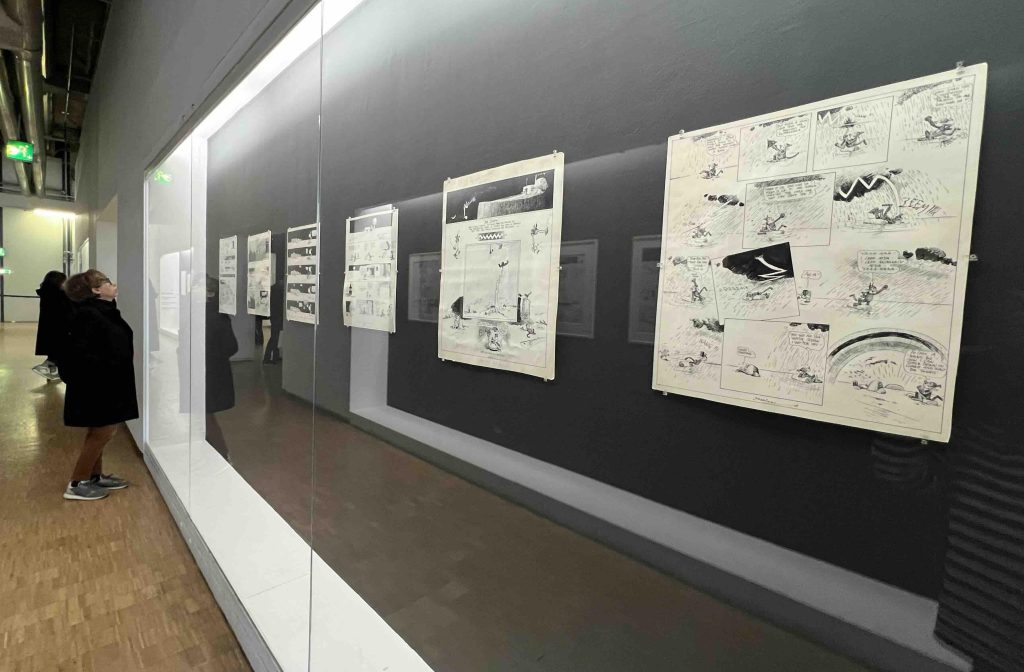
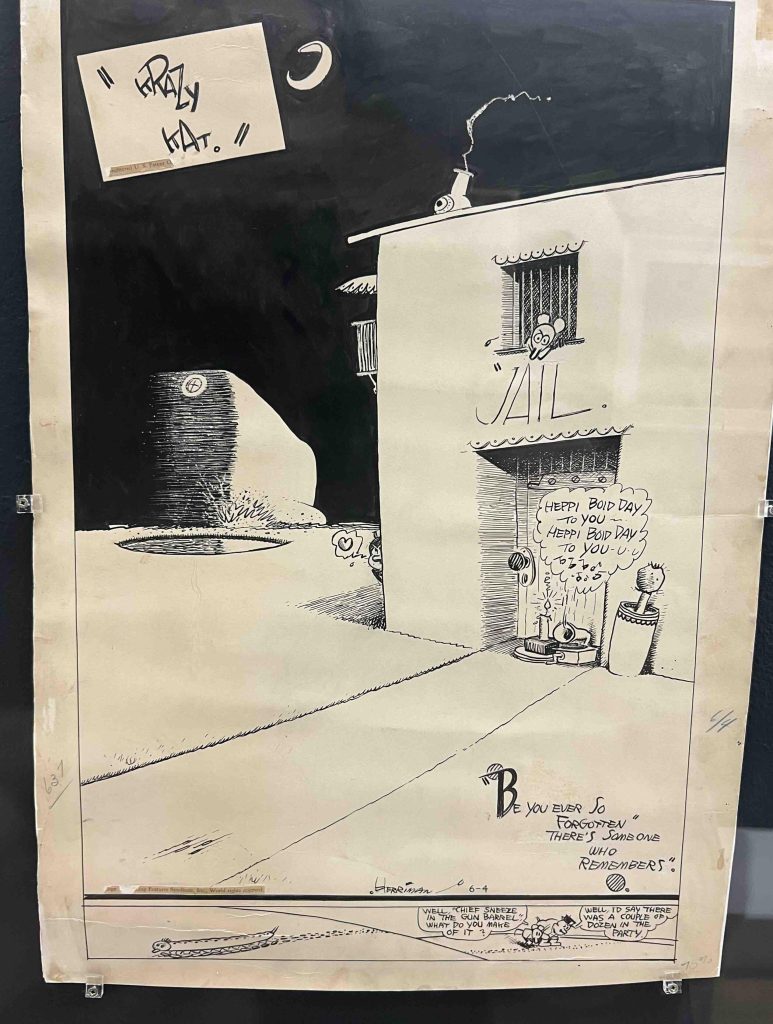
But here’s where things got REALLY interesting: on the 4th floor, interspersed in the main galleries with paintings, sculptures and prints by artists like Henri Matisse, Francis Bacon, and Piet Mondrian, there were pages of comics that had a creative connection to the works that are part of the Pompidou’s extensive collection of modern art.
For example, a painting by surrealist Rene Magritte were hung next to a comics story about Magritte created by Eric Lambé, a comics creator based in Brussels whose studio is “just a short walk from the painter’s house.” The short story evokes a little-known but significant event in Magritte’s life: his mother’s death by suicide.
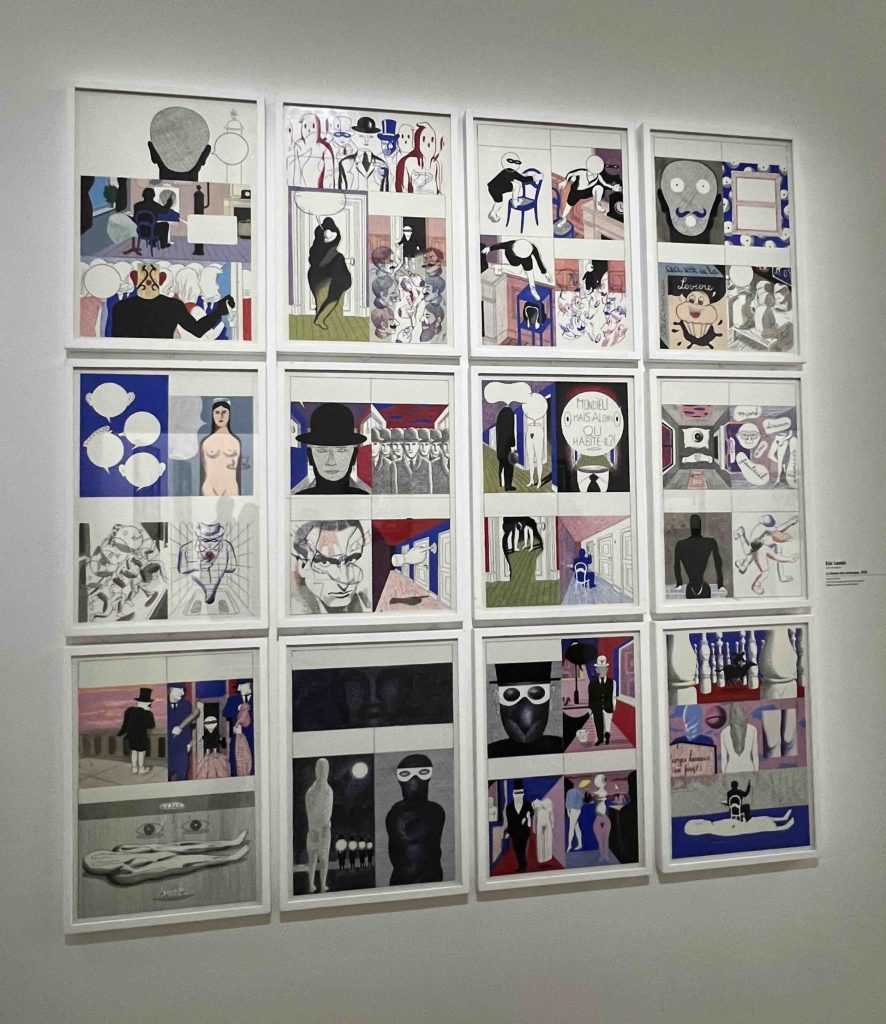
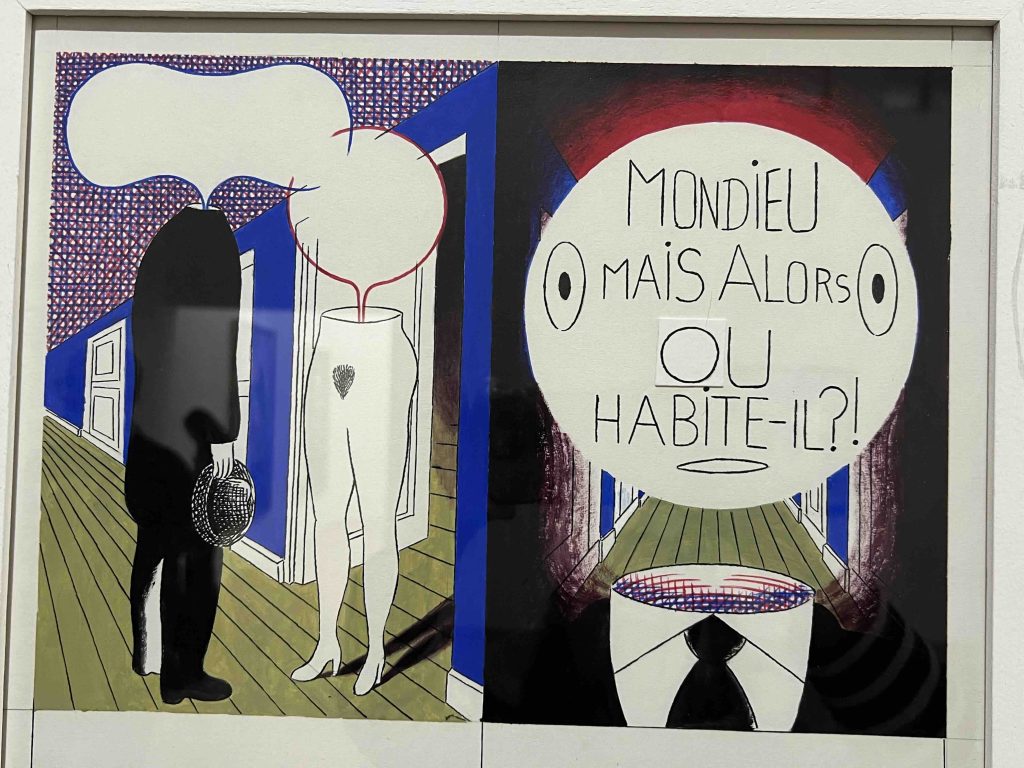
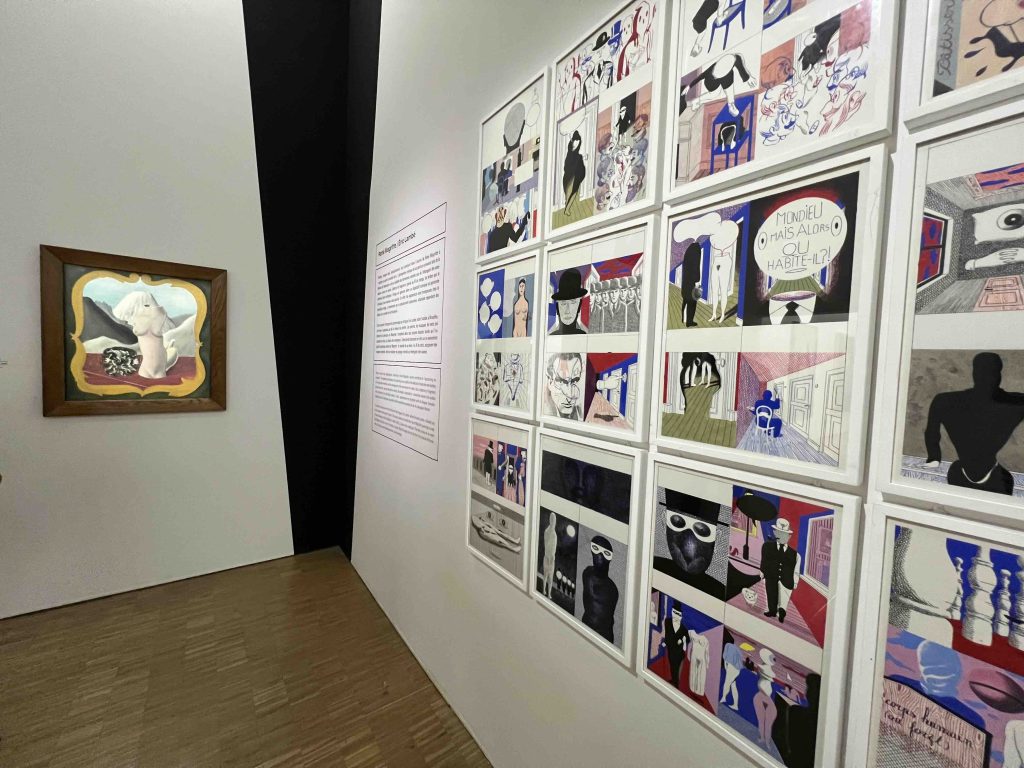
Pages from David B’s modernist art history/biography tale Nick Carter and André Breton – A Surrealist Investigation is hung in the same gallery as a recreation of Breton’s art studio that was filled with African art.
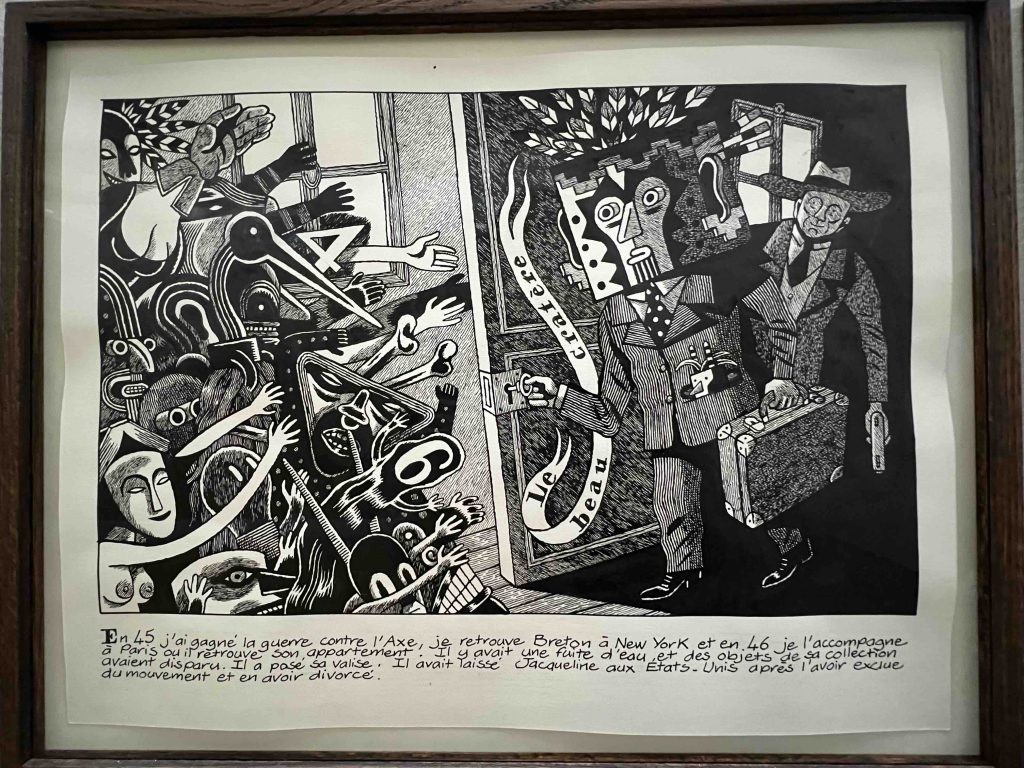
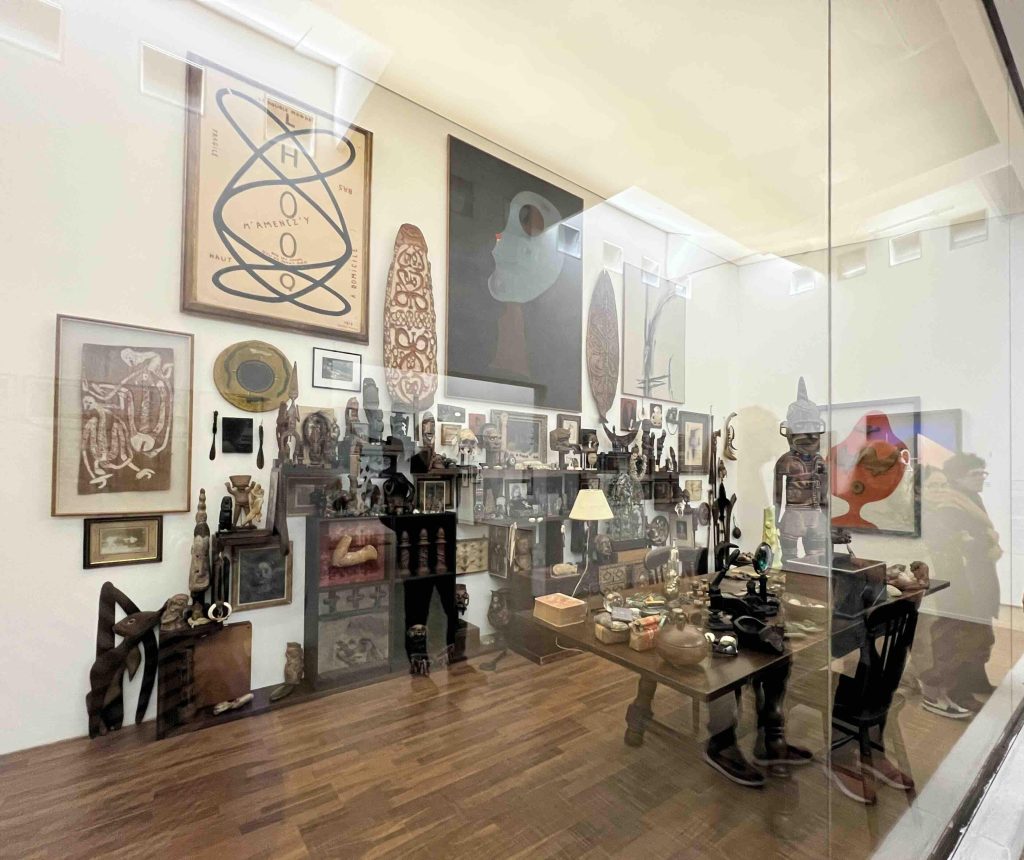
This was a lovely way to show a creative dialogue between comics and fine art, as well as a clever way to invite visitors to consider both in a new light.
Besides the exhibits, from May through October, the Pompidou Centre hosted several special events to showcase different aspects of the world of comics, including screenings of Marvel’s The Eternals, a weekend of events dedicated to manga from Japan and webtoons from S. Korea, events related to fanzines, musicians collaborating with comics creators who would draw on stage in time to live musical performances, lectures, guest artists appearances and much more.
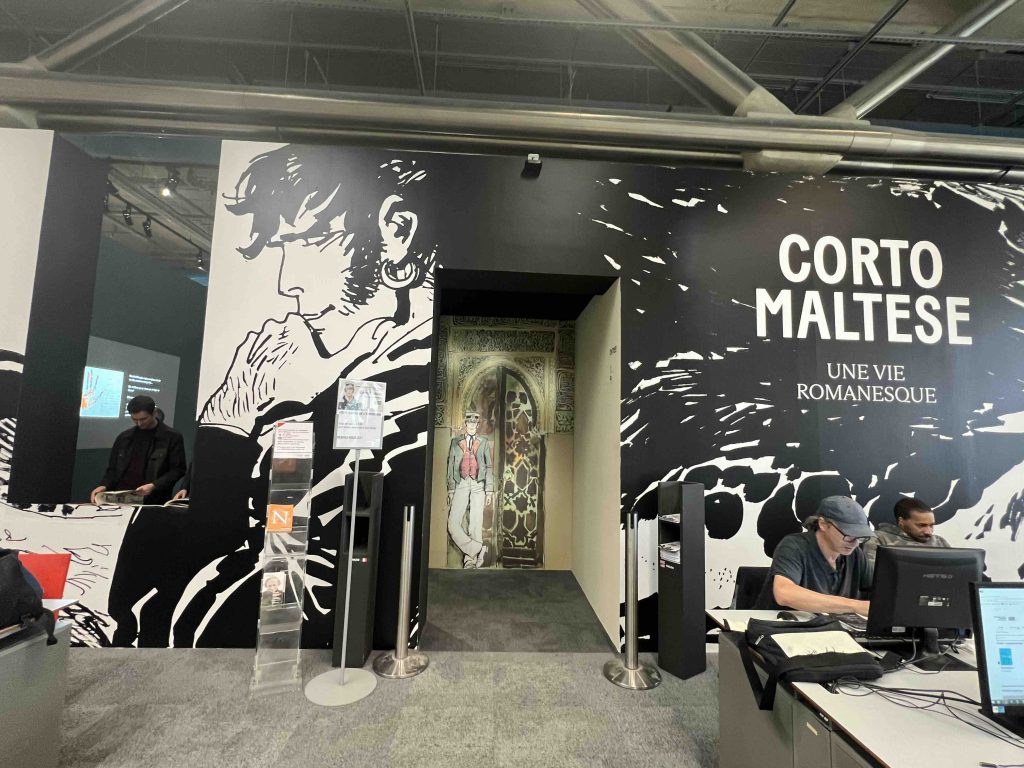
Then finally, on the 3rd floor, amidst the bibliothèque (library) was an exhibit devoted to another giant of Franco-Belgian comics, Hugo Pratt and his most famous creation, Corto Maltese. Created in 1967, Corto Maltese is a character described as “a gentleman of fortune and a romantic adventurer” and an “anarchist and solitary soldier” who travels the world. In these adventures, he often crosses paths with famous authors like Robert Louis Stevenson, Hermann Hesse, and Jack London, and more than a few beautiful women.
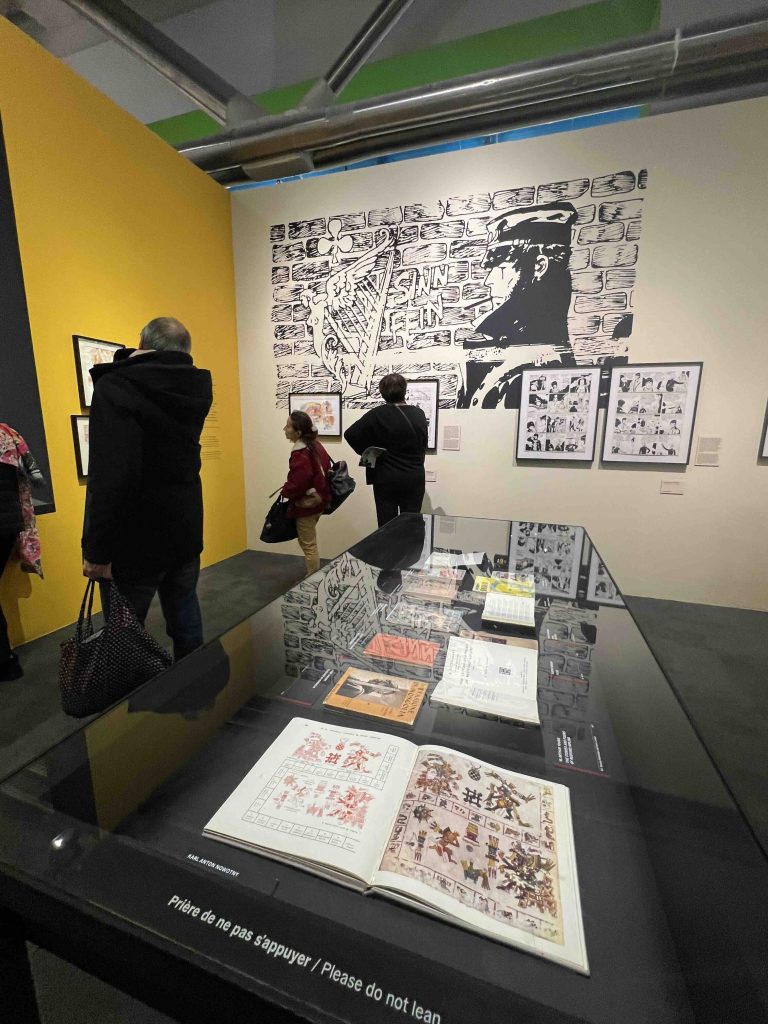
The Corto Maltese: Une vie romanesque (“a romantic life”) exhibit featured an astounding array of original comics pages, watercolor sketches, photos, handwritten notes, along with books that Pratt drew upon for inspiration and research for his stories.
Despite its status as a beloved series in Europe, Corto Maltese is one of those iconic Franco-Belgian comics creations that has somehow never caught on with N. American comics readers. IDW has published a few of his adventures in English, but most casual comics readers in the States haven’t heard of them.
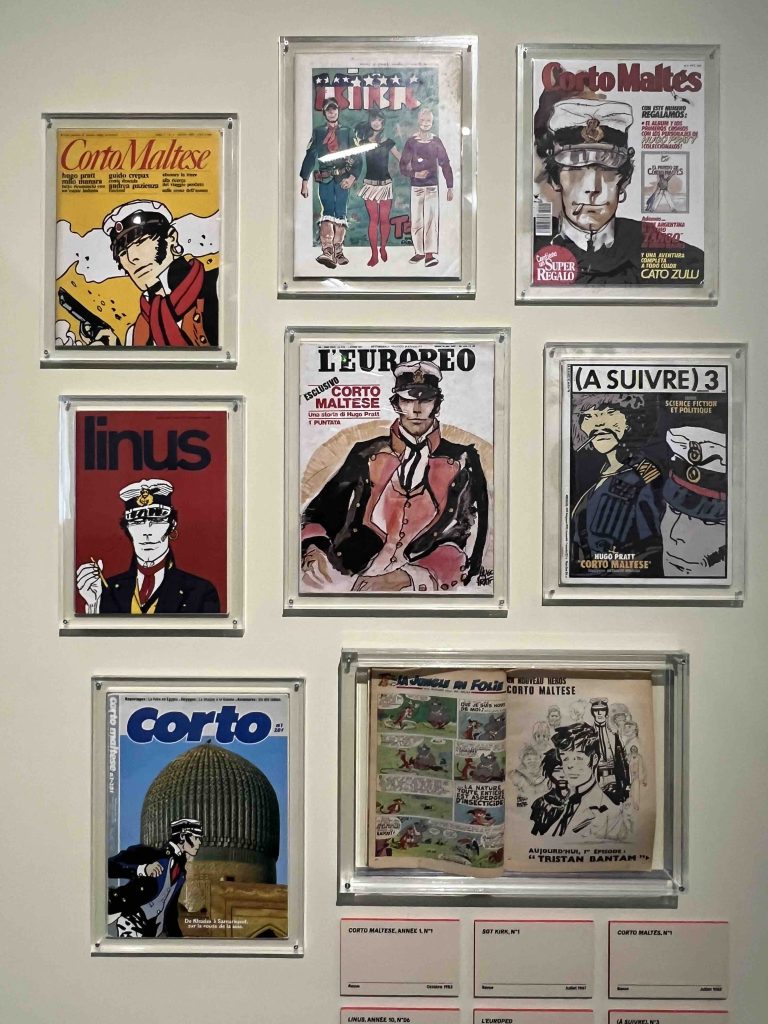
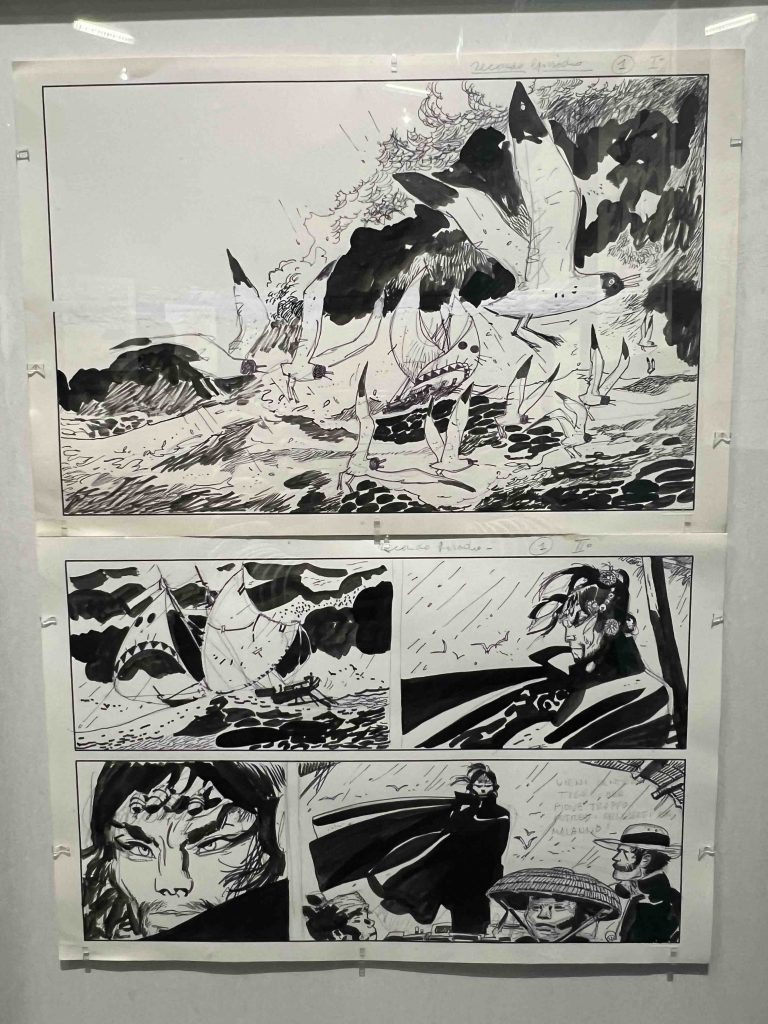
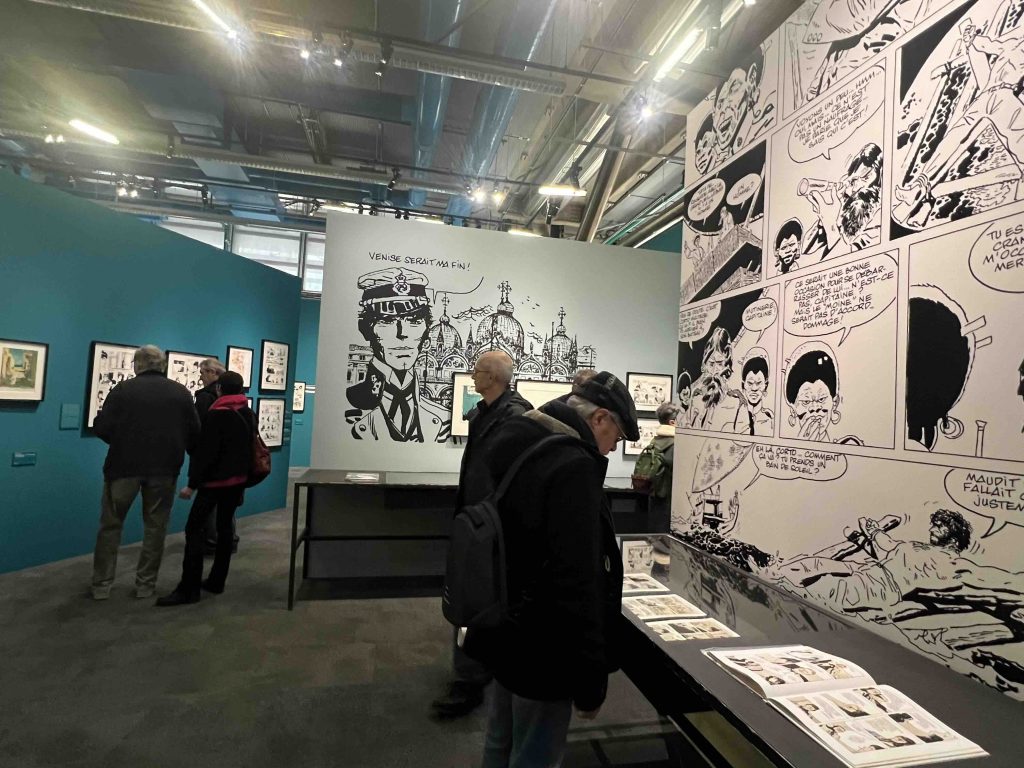
If you’d like to see more about Hugo Pratt and Corto Maltese, visit the official website, which is chock full of info to get you started.
To cap off my visit to the Pompidou, I checked out the gift shop on the ground floor and was pleased to see an extensive collection of manga and graphic novels, including the French edition of Gender Queer by Maia Kobabe.

I also picked up 3 minutes pour comprendre 50 moments-clés de l’histoire de la bande dessinée (“3 minutes to understand 50 key moments in the history of comics”), a 2022 book by Benoît Peeters. Fully illustrated (and yes, it’s only in French), this book gives readers a snapshot into the key figures of Franco-Belgian comics history, as well as notable creators from other countries, including Naoki Urasawa (20th Century Boys), Marjane Satrapi (Persepolis) and Milton Caniff (Terry and the Pirates).
It’s worth picking up if you’d like to learn more about European comics in a quick, easy-to-digest format.
Also, speaking of “digesting,” it’s time to bring up my next France travel rule, which is…
France Travel Rule 7: Enjoy all the cheese and butter… you deserve it.
After a full day of walking and comics consumption, I did some shopping, then capped off my night with a hearty dinner at Le Plomb du Cantal Rive Droite, a restaurant specializing in rustic dishes from Auvergne, a region in central France, including… aligoté.
I was introduced to aligoté by comics historian/library diva Karen Green on a prior trip to Paris, and I was pleased to see that the place we went to then was 1) still open, 2) a short walk from my hotel and 3) didn’t require advance reservations!
Aiigote is served piping hot, straight from a copper pot at your table. It’s pretty dramatic.
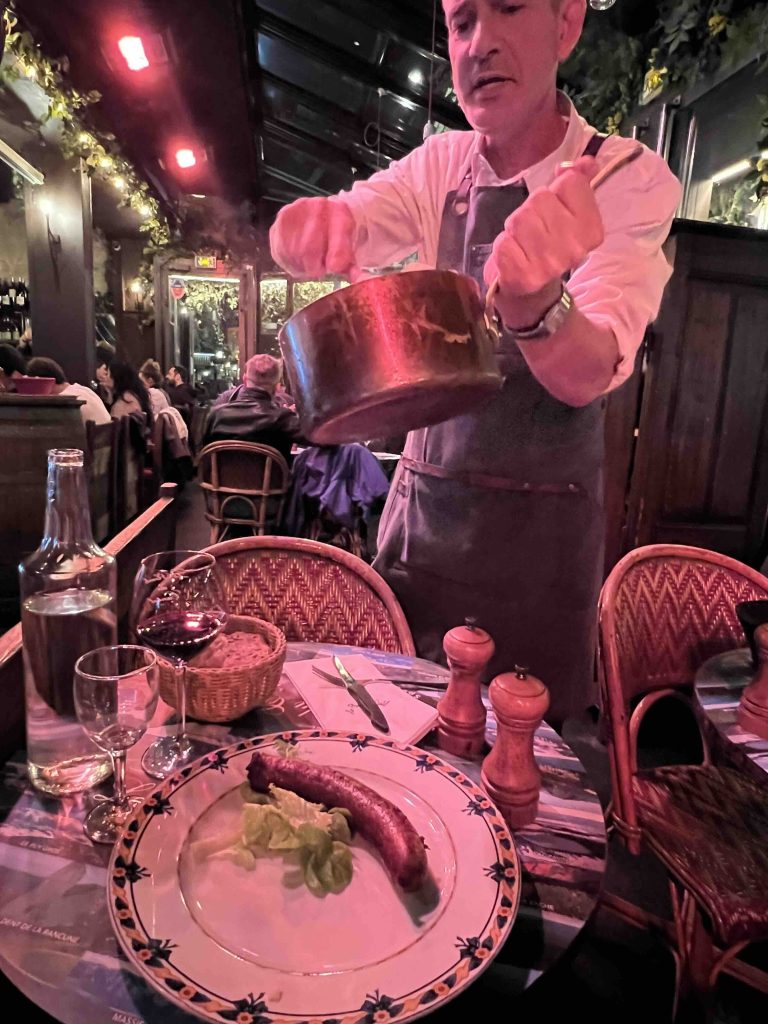
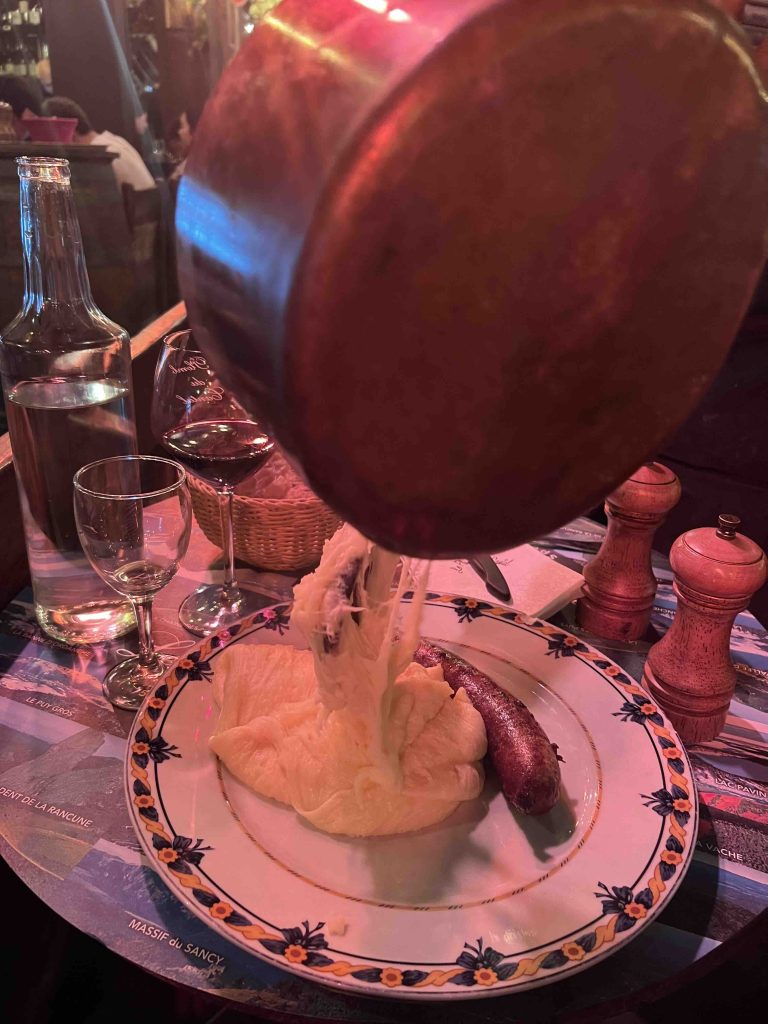
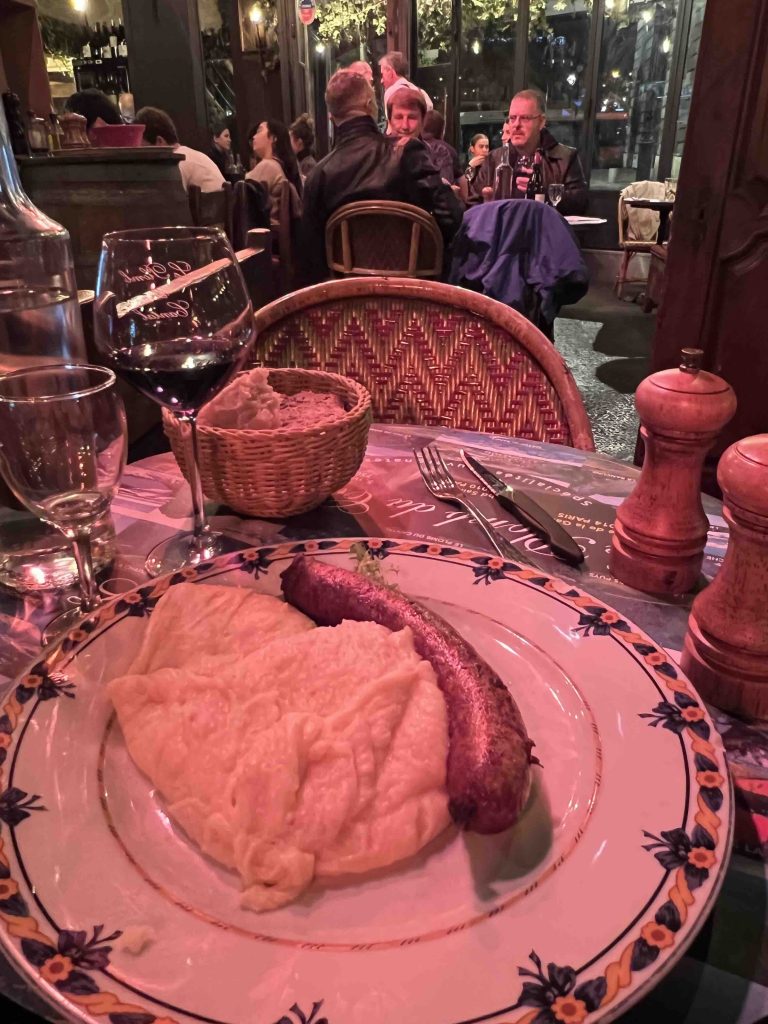
So after a long day of art and walking, I schmarfed up every bit of this cheesy, garlicky, stretchy blob of potato heaven, along with a savory sausage, salad and a glass of wine. SO GOOD, and not ridiculously expensive either.
Not coming to Paris anytime soon? You can learn how to make pommes aligoté at home, thanks to the “Simple French Cooking” blog and YouTube channel. Here’s the recipe, and here’s the video (in English).
Warning: This recipe calls for 1-1/4 pounds of potatoes, butter, heavy cream AND 1 pound of cheese. What, you thought this would be a low-calorie recipe?
That’s it for Day 1 of my France-Japan adventure. Stick around for my account of Day 2 when I make a really big train travel mistake that nearly derailed my trip.

